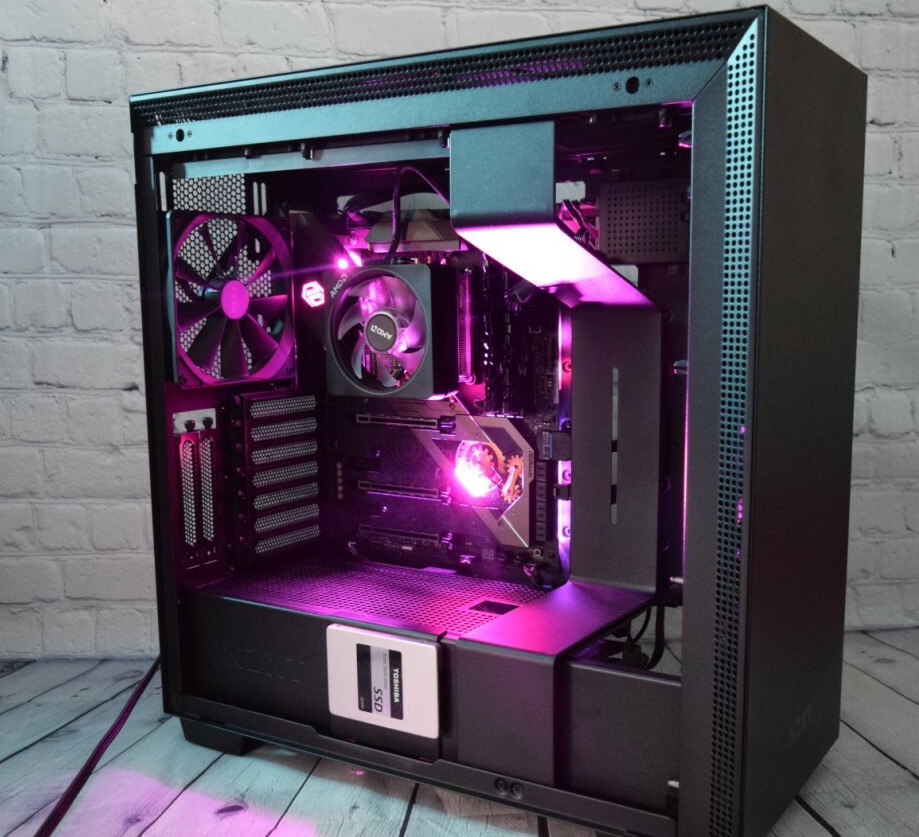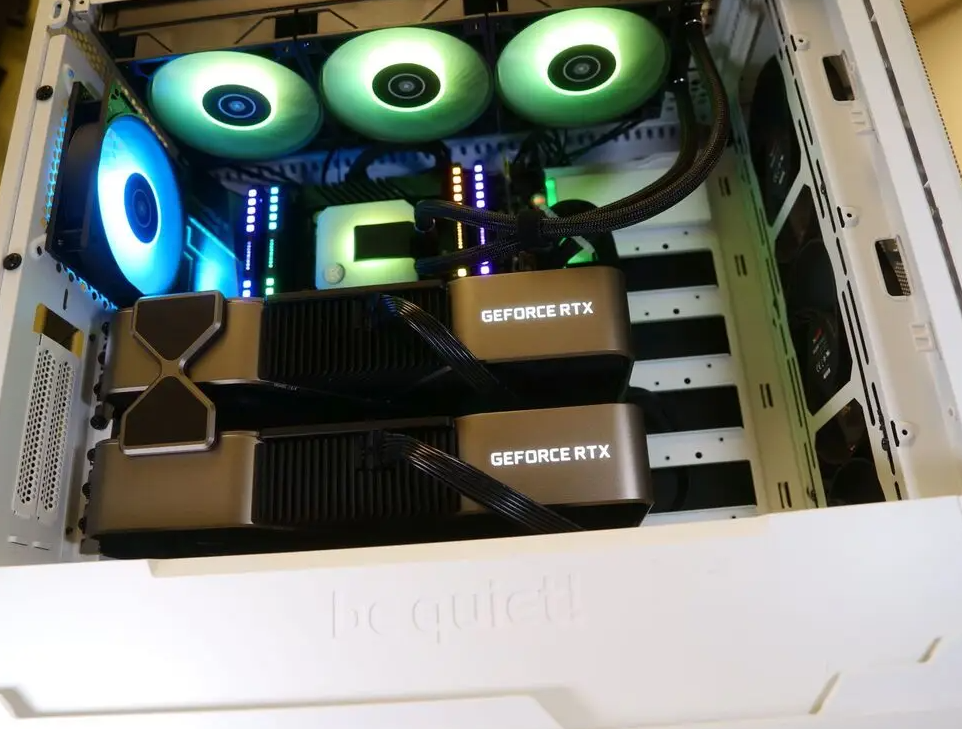The best PC case material balances durability, aesthetics, cost, and thermal performance, with steel and tempered glass being popular choices.
Different Types of PC Case Materials
When assembling a PC, the choice of case material plays a pivotal role not only in aesthetics but also in functionality, durability, and performance. Different materials offer varied characteristics that can influence the longevity, cooling efficiency, and overall experience of using the computer.

Steel
Steel is one of the most common materials used in PC cases. Its popularity stems from its durability, cost-effectiveness, and sturdiness.
- Durability: Steel cases are known to last for years, making them a solid investment for those looking for long-term solutions.
- Cost: Typically, steel cases fall within the mid-range in terms of pricing, with an average cost of around $50 to $150, depending on the brand and additional features.
- Weight: A significant drawback is its weight. Steel is relatively heavy, making these cases less portable. A standard mid-tower steel case can weigh between 15 to 25 pounds.
- Aesthetic Flexibility: Steel cases are often painted or powder-coated in various colors, giving users a wide range of aesthetic choices.
Aluminum
Aluminum cases are favored by those looking for a balance between weight and durability.
- Durability: While not as robust as steel, aluminum offers decent protection for PC components and can last several years if handled with care.
- Cost: Aluminum cases tend to be pricier, ranging from $100 to $300, often due to their sleek design and lightweight properties.
- Weight: Aluminum cases are notably lighter than steel, with a typical weight range of 7 to 15 pounds for a standard mid-tower.
- Thermal Conductivity: Aluminum has good thermal conductivity which can aid in dissipating heat, potentially improving overall PC performance.
Tempered Glass
Tempered glass cases offer a modern and elegant look, allowing users to showcase their PC components.
- Aesthetics: The clear nature of tempered glass gives a clean, premium appearance.
- Durability: While visually appealing, they’re more fragile than metal cases and can shatter if mishandled.
- Cost: Tempered glass cases vary widely in price, from $80 to over $300, depending on design complexity and additional features.
- Weight: Despite being glass, they can be heavy, with weights similar to steel cases.
Acrylic
Acrylic cases are a less expensive alternative to tempered glass but offer a similar transparent design.
- Aesthetics: Acrylic allows for clear visibility of PC components, though it can scratch more easily than tempered glass.
- Cost: Generally more affordable than tempered glass, ranging from $50 to $200.
- Weight: Lighter than both steel and tempered glass, an acrylic case can weigh between 10 to 20 pounds.
- Durability: Acrylic is susceptible to scratches and can become cloudy over time if not properly cared for.
Polycarbonate and Other Plastics
Plastic cases, especially those made from polycarbonate, are the lightest and most affordable but may not offer the best protection or durability.
- Durability: Plastics, while lightweight, are less durable in the long run and might not provide the best protection against physical impacts.
- Cost: Plastic cases are usually the most budget-friendly, with prices as low as $20 to $100.
- Weight: Extremely light, with many cases weighing under 10 pounds.
- Environmental Impact: Plastic cases are less eco-friendly compared to metals, as their production and decomposition can harm the environment.
Factors to Consider When Choosing a PC Case Material
Selecting the right material for your PC case is vital, as it plays a significant role in the performance, longevity, and aesthetics of your computer system. Here’s a deep dive into various factors to consider:
Durability and Strength
One of the primary reasons people invest in quality PC cases is to protect the delicate and often expensive components inside.
- Steel: Recognized for its sturdiness, a steel case can withstand a lot of wear and tear over its average lifespan of 5 to 10 years.
- Aluminum: It offers moderate durability but can dent more easily than steel. However, it can still serve you well for 4 to 8 years with proper care.
- Plastics and Acrylic: These materials can be more susceptible to breaks, cracks, or warps, especially when exposed to heat or direct sunlight. They typically last 2 to 6 years.
- Tempered Glass: It provides a premium look, but dropping or knocking it can lead to shattering. With careful handling, it can last for 3 to 7 years.
Thermal Conductivity and Cooling
The material’s ability to conduct heat can influence the overall temperature of the system, which can, in turn, affect the performance and lifespan of PC components.
- Steel: Possesses moderate thermal conductivity. It’s often paired with good cooling solutions to ensure efficient heat dissipation.
- Aluminum: Known for its excellent thermal conductivity, aluminum cases can help in more effective cooling, potentially boosting the performance of the PC.
- Plastics and Acrylic: They tend to retain heat more, making it imperative to have a robust cooling system in place.
Weight and Portability
For those who move their systems often, the weight of the case becomes a crucial factor.
- Steel: On the heavier side, a standard mid-tower case can weigh between 15 to 25 pounds.
- Aluminum: Much lighter than steel, a similar-sized aluminum case usually weighs between 7 to 15 pounds.
- Plastics, Acrylic, and Tempered Glass: These materials offer varied weights, but they’re typically in the range of 10 to 20 pounds.
Aesthetic Appeal
The look of the PC case is essential for many, especially enthusiasts who want their setup to reflect their personal style.
- Steel and Aluminum: Both offer a sleek and modern look, especially when brushed or anodized. They can be painted in various colors, adding to the aesthetic versatility.
- Tempered Glass: Gives a clear view of the internals, perfect for showcasing RGB lighting and custom components.
- Acrylic: Offers a similar look to tempered glass but can scratch more easily.

Price and Affordability
Budget constraints can influence the choice of material.
- Steel: Offers a good balance between cost and durability, with prices ranging from $50 to $150 for standard cases.
- Aluminum: Being a bit more premium, prices hover around $100 to $300.
- Tempered Glass, Plastics, and Acrylic: These materials offer a broad price spectrum, from as low as $20 for basic plastic cases to over $300 for high-end tempered glass designs.
Environmental Impact and Sustainability
The tech industry is increasingly conscious of its environmental impact, and as consumers, our choices in PC components can contribute to this global effort. One such area of consideration is the materials used in PC cases. By understanding the environmental footprint of these materials and their recyclability, we can make more sustainable choices.
Environmental Footprint of Each Material
- Steel: Steel production involves mining iron ore, which can lead to habitat destruction. However, the steel industry has made strides in reducing CO2 emissions. For every ton of steel produced, about 1.8 tons of CO2 are emitted, but advancements in cleaner steelmaking processes are seeking to reduce these numbers.
- Aluminum: The production of aluminum is energy-intensive. It requires approximately 15.7 kWh of energy to produce one kilogram of aluminum. Yet, aluminum is abundant and can be sourced with less environmental disruption compared to some other metals.
- Plastics and Acrylic: Derived from petroleum, the production of plastics releases toxins into the environment. The production of 1 kilogram of acrylic emits around 5.6 kg of CO2. Plastics also contribute to landfill waste and can take hundreds of years to decompose.
- Tempered Glass: Glass production has a moderate carbon footprint. Manufacturing one ton of glass can emit up to 700 kg of CO2. However, glass is made from abundant materials like sand, soda ash, and limestone.
Recyclability and Reusability
- Steel: One of the most recycled materials globally, almost 70% of all steel is recycled annually. Its recyclability does not degrade, meaning steel can be recycled infinitely without losing quality.
- Aluminum: Highly recyclable, about 75% of all aluminum ever produced is still in use today. Recycling aluminum consumes only 5% of the energy required to produce the same amount from raw materials.
- Plastics and Acrylic: The recyclability of plastics varies. While some can be recycled, others end up in landfills or the environment. Acrylic, specifically, is not commonly recycled due to the complexity of its polymer structure.
- Tempered Glass: While glass is recyclable, the tempering process complicates this for PC case panels. Tempered glass can’t be mixed with regular glass in recycling due to the different melting points, making it less commonly recycled.
Case Studies: Popular PC Case Brands and Their Material Choices
In the PC building community, the choice of a case isn’t just about functionality; it’s a statement of style, aesthetics, and brand loyalty. Different brands have taken various paths in terms of material choices based on their targeted audience, design philosophy, and market positioning. Let’s delve into the material choices of some of the industry’s giants.

Corsair
Corsair is a brand synonymous with quality and innovation. They offer a vast range of products, and their PC cases are no exception.
- Material Choices: Corsair primarily uses steel for the main body of their cases, given its durability and strength. For the aesthetic appeal, they often integrate tempered glass side panels, allowing users to showcase their builds.
- Price Range: Their cases can vary from around $50 for their entry-level models, and it can go up to $500 for their high-end, feature-rich options.
- Popular Model: The Corsair 4000D is a fan favorite, boasting a steel frame with tempered glass panels, offering a balance between durability and aesthetics.
Bonito
Note: As of my last training data (January 2022), “Bonito” isn’t recognized as a popular PC case brand. It’s possible that it’s a newer brand or a niche one. Therefore, I’ll provide a generic description.
Bonito, though lesser-known than giants like Corsair, has been carving its niche in the PC case market.
- Material Choices: Focusing on lightweight builds, Bonito often opts for aluminum structures, complemented by acrylic panels for a unique look.
- Price Range: Their cases are generally mid-range, hovering between $100 to $250.
- Popular Model: The Bonito AeroFlow, known for its lightweight aluminum frame and distinctive design, stands out in their lineup.
Fractal Design
Originating from Sweden, Fractal Design emphasizes minimalistic designs with functionality at the forefront.
- Material Choices: Predominantly using steel for its robustness, Fractal Design incorporates tempered glass for those who want a clear view of their PC’s internals.
- Price Range: Their cases start at around $70 and can reach up to $350 for their premium offerings.
- Popular Model: The Define R series, especially the R6, exemplifies their philosophy of clean design and robust construction.
Cooler Master
A stalwart in the PC components industry, Cooler Master offers a diverse range of cases to cater to various user preferences.
- Material Choices: Cooler Master uses a mix of steel and plastics in most of their cases. However, their higher-end models often feature tempered glass panels for a premium look.
- Price Range: They offer something for everyone, with prices starting as low as $40 and going up to $400 for enthusiast-level cases.
- Popular Model: The MasterCase series, with its modular design and rich feature set, is a top pick among many PC builders.
Thermaltake
Known for their innovative designs, Thermaltake is a brand that’s hard to miss when discussing PC cases.
- Material Choices: Thermaltake primarily focuses on steel chassis for durability. They are also pioneers in incorporating extensive tempered glass designs, sometimes even on more than one side of the case.
- Price Range: Their entry-level cases can be acquired for around $60, while their high-end, uniquely designed cases can command prices over $500.
- Popular Model: The Thermaltake Core P series is an open-frame, modular design that stands out in any build, showcasing the company’s innovative spirit.
